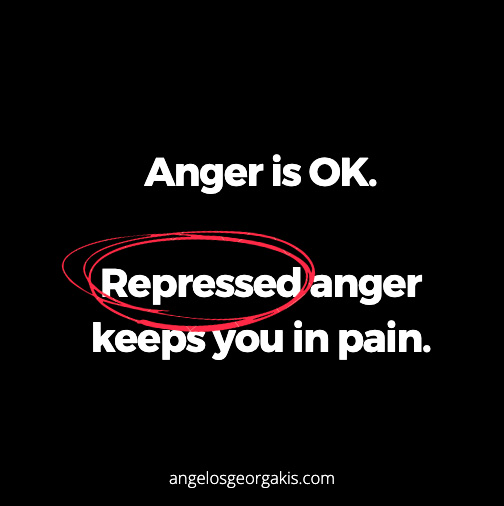These are my top 5 realisations when it comes to relationships.
#1 – A Commitment to Feeling Good About Each Other
This is the most important thing about relationships in my opinion:
No matter how angry you may often feel with your partner…
No matter what either of you may have said or done…
No matter what either of you may say or do…
There’s only one thing you both need to make your relationship work and thrive:
A commitment to feeling good about each other.
A commitment to be on each other’s side no matter what has happened.
A commitment to getting over yourself and your thinking about what has happened!
A commitment to not allowing bad feeling to stick around.
I can’t imagine a relationship that would fail if both were committed to this.
No matter how long it takes to get over your pride, as long as you’re both committed to this, it will be okay.
Probably my biggest realisation about relationships.
#2 – A Relationship Happens in your Head
If you want to cure your relationship you have to look within—not out there in the other person.
The relationship is NOT a separate entity between you and your partner.
You may call it dynamics, chemistry, vibe… but that’s an illusion.
A relationship starts and ends in your head.
Your own thoughts and feelings create what you call a relationship.
And you can steer those thoughts and feelings in whichever direction you choose.
#3 – Negative Thoughts Can’t Ruin a Relationship—Only your Reaction to Them
You may think after an argument, “Why would I have such negative thoughts about my partner if I truly love them?”
When you are upset or angry with your partner, you can allow yourself to have any thoughts.
The problem is not the thoughts—but the thoughts about the thoughts.
For example, in the heat of the moment you may think, “This is the end, I’ll have a divorce, we are so different, I can’t live with this person any more, I hate them”.
And later, after things have calmed down, you may still be thinking:
“Why did I ever have that thought? That means something, doesn’t it? Maybe I don’t really love that person? If I did, that would never have occurred to me, would it?”
You know what?
That’s the transitory nature of thought—thoughts simply come and go.
Embrace any thought—no matter how scary it might appear.
The problem is not the thought, but the extra layers of thoughts you add on top.
When you have a negative feeling, you have negative thoughts.
Negative thoughts don’t define you or your relationship.
They don’t mean a thing.
#4 – Rethinking Forgiveness in a Relationship
We often think we forgive the other person.
In reality, we forgive ourselves for feeling bad about the other person.
Forgiveness is getting over our own experience and moving towards a better feeling about our partner.
Forgiveness is actually selfish. We do it first for ourselves because we don’t want to live with bad feeling.
We don’t want to stay with our first reaction because we realise it doesn’t help.
We want to move to a higher level of consciousness.
This is the process of letting go.
We let go of our expectations of the other person in order to feel better in the relationship.
#5 – Being Open When Looking for the Right Partner
The more open you are—and less specific—about the criteria your ideal partner needs to meet, the better.
We all enter a relationship with a list of checkboxes.
They have to be this, they have to be that.
I had someone tell me that they were so good at shifting between possible mates that they could tell if someone wasn’t qualified before they even met with them.
How is that possible?
Explore someone as a person and see where it goes.
You may believe that you can only be with someone you can have deep intellectual conversations with—but you may realise that you love being with someone simply because you enjoy their company.
So, instead of thinking and analysing whether someone is good for you, be open and explore that person.
You will be surprised.
Loving you, Angelos



